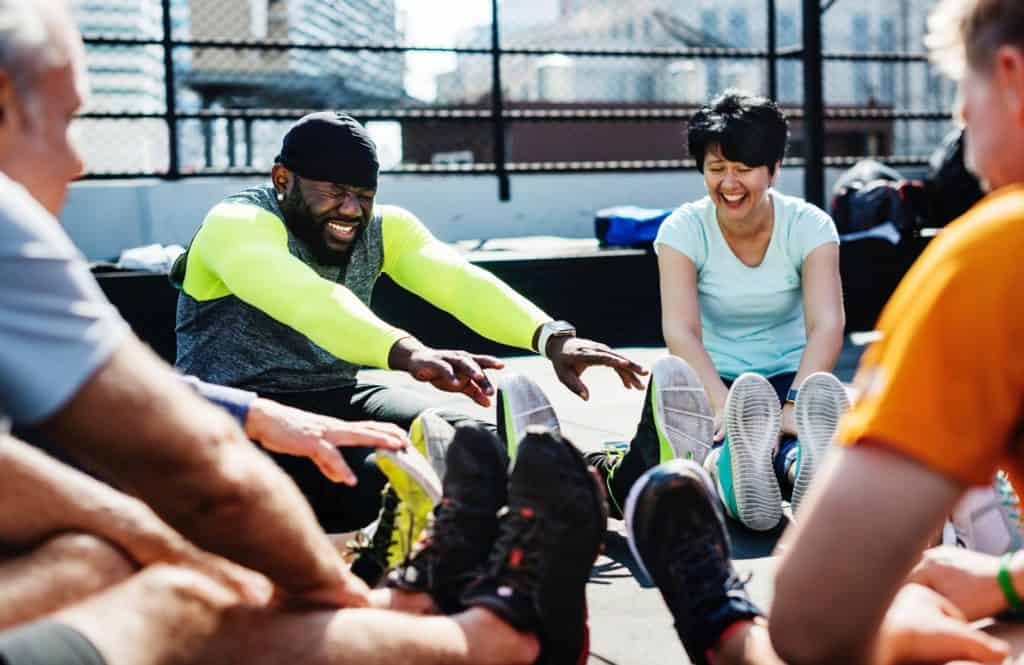Properly Fuel for That Marathon (or just life)
It’s pretty well known that nutrition plays an enormous role in your fitness program. However, did you know that the type of fitness you are pursuing comes with its own set of nutritional requirements?
Bodybuilders, for example, consume notoriously high levels of protein in order to increase their muscle mass. All that extra size comes with a price tag in terms of energy expenditure, calorie consumption, and macro requirements, though. If you are heavy into endurance sports or looking to run a marathon, you shouldn’t expect to be too bulky or you risk being slowed down. So, why would you need to intake as much protein? Answer: For endurance sports, you don’t.
As with anything, your daily diet should reflect your individual goals so you can perform at your best when the time comes. Marathon nutrition follows that same rule.
Here are some things you should keep in mind when training for your first (or fortieth) long distance event.
Hydrate!
This shouldn’t be news, but properly hydrating before you even begin working out is a necessity. You cannot simply sip water as you are walking onto a course and expect to perform properly.
Two-thirds of Americans are chronically dehydrated. That is a huge number of people, encompassing folks from every walk of life. Yes, that includes people who don’t do much as well as those who are incredibly active. Being dehydrated causes all sorts of issues, but the risks are even higher for those living an active lifestyle.
Heat sicknesses and muscle cramping are major risk factors for long distance runners. Both issues can be heavily impacted by individual hydration levels.
During the days leading up to the big show, and throughout the event, you need to ensure you are taking in enough water. That is, if you want to perform at your peak. While you are upping your water intake, remember: endurance runners lose a lot of bodily sodium in their sweat so make sure you are replenishing those as needed as well.
If you are interested in learning more about heat sicknesses, click: Here
Pre-Workout Nutrition
Just like with hydration, you need to prepare your body for the work it is about to put out by ‘stocking up’ its energy stores.
As a runner, most of your energy is expended by slow twitch muscles which are used during endurance activities. Their entire purpose revolves around being fatigue resistant and they work towards more sustained movements.
Since they are far more aerobic in nature and use a different energy pathway than their fast twitch counterparts, marathon nutrition should consist of between 50% and 65% carbohydrates throughout your training and in the hours leading up to your race. The key is to make sure that you are giving your slow twitch muscles the energy they need to ‘fill up’ so the energy is there, ready to be burned as needed.
Make sure that what you are ingesting are quality carbs, such as rice, bananas, and berries. Stay away from junky, highly processed carbs during a training cycle to avoid insulin spikes, energy crashes, and losing out on the potential to eat other quality foods that you could be consuming.
Working to get the right amount and type of carbohydrates into your body hours before you even step foot on the course can give you the kind of sustained energy you need to get started and perform your best from the moment you take off.
Mid-Run
Running long distances uses an extremely large amount of energy. Anything over 45 minutes of consistent exercise is bound to use all the energy you have stored up, and, along with that comes the dreaded ‘wall.’ On-the-run nutrition is a necessity for endurance athletes to avoid crashing just miles into the event.
During your training you should work on getting used to eating on the run. It isn’t going to be fun, but it’s doable if you focus on the right type of fuel sources and consume them at the right time.
Look for easy to digest foods, such as glucose gels, dried fruits, and sports drinks. Focusing on these types of foods will help your body break them down and give you the energy you need to continue along on your run.
Aim to ingest about 20-60g of carbs every hour you are doing sustained running, and eat them before you need them. Don’t wait until you are struggling to continue moving your legs to break into your snack fanny pack. Learn how your body feels at different stages and start pulling in energy before you need it.
Post-Run
Getting yourself prepared and making it through the race is one thing. Giving your body the resources it needs to recover after long distance running is another.
In the run-up to the big day and throughout the event, carbohydrates are vastly more important than the other macronutrients. Protein and fat have their place, but carbs are key when it comes to sustaining energy levels. Complex carbs during the pre-event diet and easy to digest carbs during the event can keep you moving, but what about afterwards? Few people actually think about their post-marathon nutrition.
Whereas before you were relying on a high carb diet, post-race you need to up your intake of proteins so that your muscles can recover properly and easily.
Try to consume a high protein snack within an hour of finishing your race. This way your body can begin the process of rebuilding damaged fibers shortly after the race, and you can get back onto the road faster. Ensure that you continue to have a higher than usual (for endurance athletes) protein intake for a few days afterwards to re-feed your muscles and help them get back to 100%.
Don’t forget to circle back to bullet one during the post-race as well. Make sure you re-hydrate yourself after, and get plenty of rest.
Before you know it, you will be right back on the road.
Need some help?
Shape Success, Live Exceptionally
Hit that button, and get started today.
Let Us help You Out
At CONDITIONerd we are here to help you achieve better physical and mental health through exercise. Check out the plans we offer to our customers and see if you could benefit from working with our team. And if you have questions, you can always contact a CONDITIONerd team member.
Personal trainers, like those found here, can help guide you on your pathway towards reaching your fitness goals, whether that is getting bigger, stronger, faster, more lean, or just generally feeling better.
We can get you setup with a periodized workout plan, supplement information, and advice on nutrition to help you reach your goals.
The only thing you need is some motivation and a willingness to change some old habits.
Get into contact with us to find out what membership is right for you. In a CONDITIONerd program, you’ll be surrounded by others who can help you to get where you want to be.
Generally, our clients start to see some pretty awesome changes in 2-3 months time, some sooner.

